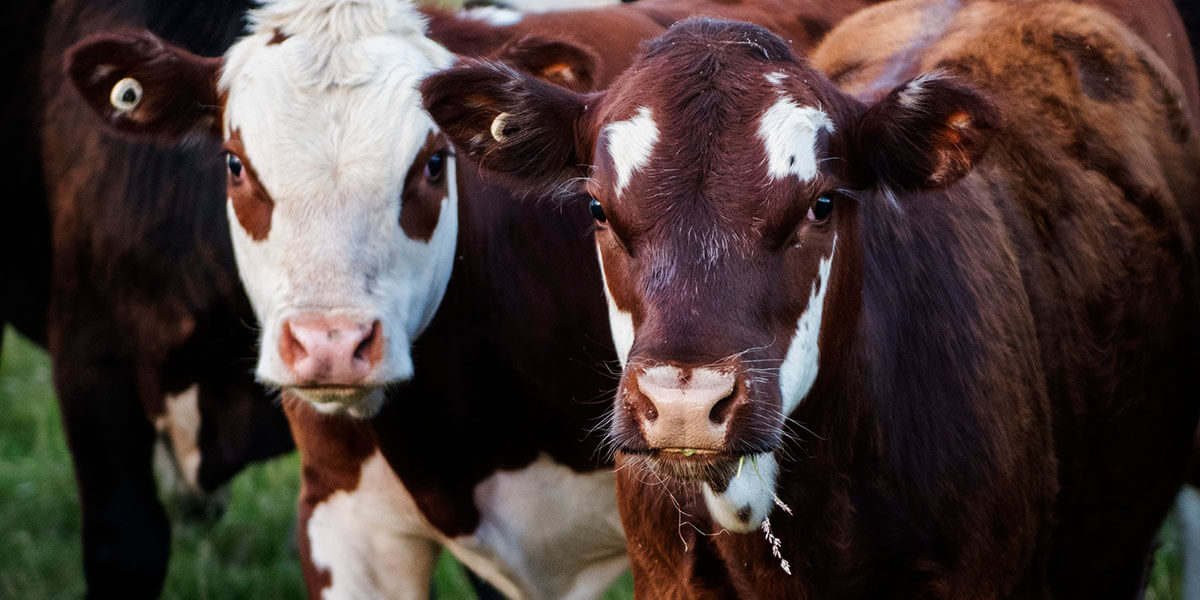A fever is the body’s natural response to inflammatory stimuli, such as a virus or infection. Once the immune system recognizes the infection — bacterial or pathogenic — it triggers a change in body temperature to heal itself.
The fever or inflammatory response can be a two-edged sword. It’s beneficial in that the fever is doing its job to protect the animal, but it can also cause decreases in productivity, growth, feed efficiency, reproduction and lactation. This is because the fever response requires nutrients on one side, and it reduces appetite on the other side.
Let’s imagine a beef cow has four buckets of needed nutrients — maintenance, growth, reproduction and lactation. When inflammation occurs in the form of a fever, the immune system must react and divert nutrients to fight the infection or virus, leaving fewer nutrients to maintain growth, reproduction and lactation.
In an ideal situation, the fever response is rapid and short lived, and nutrient depletion will be minimal. However, if the inflammatory response is slow and extended, then the beef cow will need to divert additional nutrients from the maintenance, growth, reproduction and lactation buckets to help the immune system fight the infection or virus. This leaves limited nutrients available to support the optimum genetic potential of the animal to grow, reproduce and lactate. In a beef feedlot scenario, an inflammatory response to an infection or disease can negatively impact feed intake, average daily gain, growth and muscle development.
Trace Mineral Supplements, like Zinc, Helps Support Cattle Respiratory System
Trace minerals, such as zinc, are one of the key nutrients that boost an animal’s ability to respond to inflammatory stimuli. Compared to energy or amino acids, the demands of the immune response are higher for trace minerals than for virtually all the other nutrients. And the reason for that is they are cofactors for a lot of the enzymes and protective proteins that are produced by the immune system.
If producers take care of immunity first, ensuring the animal has the nutrients needed for a strong immune response, then the impact on performance will be limited. Because the animal’s body will not need to spend time and energy fighting the infection or pathogen long-term, it can get back to doing what it’s intended to do and that is to gain muscle and produce milk.
Cattle Feedlots See Results in Reducing Infectious Bovine Rhinotracheitis Virus with Zinc
Zinpro conducted a study to evaluate how beef calves in a feedlot setting responded to an infectious bovine rhinotracheitis virus (IBRV) challenge when fed different forms of zinc.
Forty steer calves were included in the study. The dams of the steers in the study were sorted into two groups (two replicates per group) by body weight and assigned to one of two mineral supplements. The ration of one group was supplemented with 50 ppm of inorganic zinc oxide and 40 ppm of inorganic manganese oxide, while the other group’s ration was supplemented with Zinpro Performance Minerals® including 50 ppm of ZINPRO® zinc methionine and 40 ppm of Zinpro® manganese methionine. At the feedlot, the calves were not vaccinated for IBRV and remained in the same mineral source treatment as assigned to their dams at pregnancy.
Beef calves in both groups received the IBRV challenge via the nose, similar to a natural exposure and to ensure each animal in the study was exposed to the virus. Then rectal temperatures were taken daily following the IBRV challenge.
The study showed that beef calves receiving ZINPRO zinc methionine and the Zinpro manganese methionine exhibited a more efficient immune response to the IBRV challenge. Changes from the fever response returned to the baseline more rapidly in the beef calves fed the ZINPRO zinc methionine and the Zinpro manganese methionine performance trace minerals.
In addition, dry matter intake change was minimized, and body weights remained higher during the inflammatory process for calves fed performance trace minerals from ZINPRO zinc methionine and Zinpro manganese methionine.
By providing zinc from ZINPRO zinc methionine, the fever response process was initiated more rapidly, and the fever subsided sooner, illustrating a more efficient immune response that minimizes the energy expenditure associate with systemic infection.
Organic Trace Mineral Supplements Help Manage Cattle Respiratory Diseases like IBRV
By including ZINPRO zinc methionine and Zinpro manganese methionine from Zinpro Performance Minerals in the diet, the producer is equipping the animal to more quickly recover from a challenge. And in doing so, the animal returns to a normal state of production and more rapidly funnels nutrients to animal performance including growth, reproduction and lactation. Plus, the study also demonstrated that the inclusion of these performance trace minerals helped to maintain feed intake and growth during the challenge.
At the end of the day, when producers include zinc and manganese from Zinpro Performance Minerals in beef diets, they are helping enhance the overall wellness and performance of beef cattle in their operation, while also delivering a strong return on investment.
To learn more about the impact trace minerals can have on inflammation, contact your Zinpro representative, visit our Managing Inflammation page or zinpro.com/beef.

